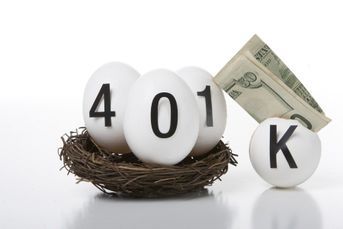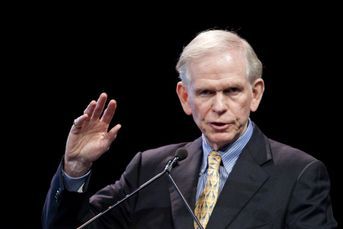Gross: Investors playing a dangerous game with loose money
Pimco's co-CIO says central banks pushing investors to riskier assets but that policy has limits.
Pacific Investment Management Co.’s Bill Gross, manager of the world’s biggest bond fund, said the unprecedented cash added to the financial system by central banks is raising the risk of a slide in global asset prices.
“Investors are all playing the same dangerous game that depends on a near-perpetual policy of cheap financing and artificially low interest rates in a desperate gamble to promote growth,” Mr. Gross wrote in his monthly investment outlook posted on Pimco’s website Tuesday. The Federal Reserve, Bank of Japan, European Central Bank and Bank of England “are setting the example for global markets, basically telling investors that they have no alternative than to invest in riskier assets or to lever high-quality assets.”
Mr. Gross reiterated that Pimco is focused on shorter-maturity Treasuries, mortgage and corporate debt that will benefit by the Fed keeping its target rate for overnight loans near zero for several years. Fed policy makers cut rates to a record low as the financial crisis mounted in 2008 and vowed to keep them there until the economy and employment show sustained signs of recovery.
“This now near-five-year migration across the global asset plains in search of taller grass and deeper water has had limits, both in price and real growth space,” Pimco’s co-chief investment officer wrote. “If monetary and fiscal policies cannot produce the real growth that markets are priced for, and they have not, then investors at the margin” will begin “to prefer the comforts of a less risk-oriented migration.”
‘BE AFRAID’
Global stocks beat all assets for a third month in November, the longest winning streak since 2009. Commodities extended declines as gold fell the most since June.
The MSCI All-Country World Index of equities in 45 markets rose 1.5% including dividends and the S&P 500 reached a record as China pledged to expand economic freedoms, the European Central Bank cut interest rates and speculation increased that the Fed will delay reducing stimulus. The U.S. Dollar Index advanced 0.6% and the S&P GSCI Total Return Index of 24 commodities fell 0.8%. Bonds of all types lost 0.16% on average, according to Bank of America Merrill Lynch’s Global Broad Market Index.
“Look for constant policy rates until at least 2016,” in the U.S., Mr. Gross said. “Front-end load portfolios. Don’t fight central banks, but be afraid. Global economies and their artificially priced markets are increasingly at risk, but the unwinding may occur gradually.”
The Fed, which has kept its benchmark overnight bank lending rate in a range of zero to 0.25% since December 2008, has said it will maintain that rate while unemployment held above 6.5% and inflation stayed below 2.5%.
The performance of the Total Return Fund over the past three years puts it ahead of 74% of similarly managed funds, gaining 4.34% over the period, according to data compiled by Bloomberg.
(Bloomberg News)
Learn more about reprints and licensing for this article.








